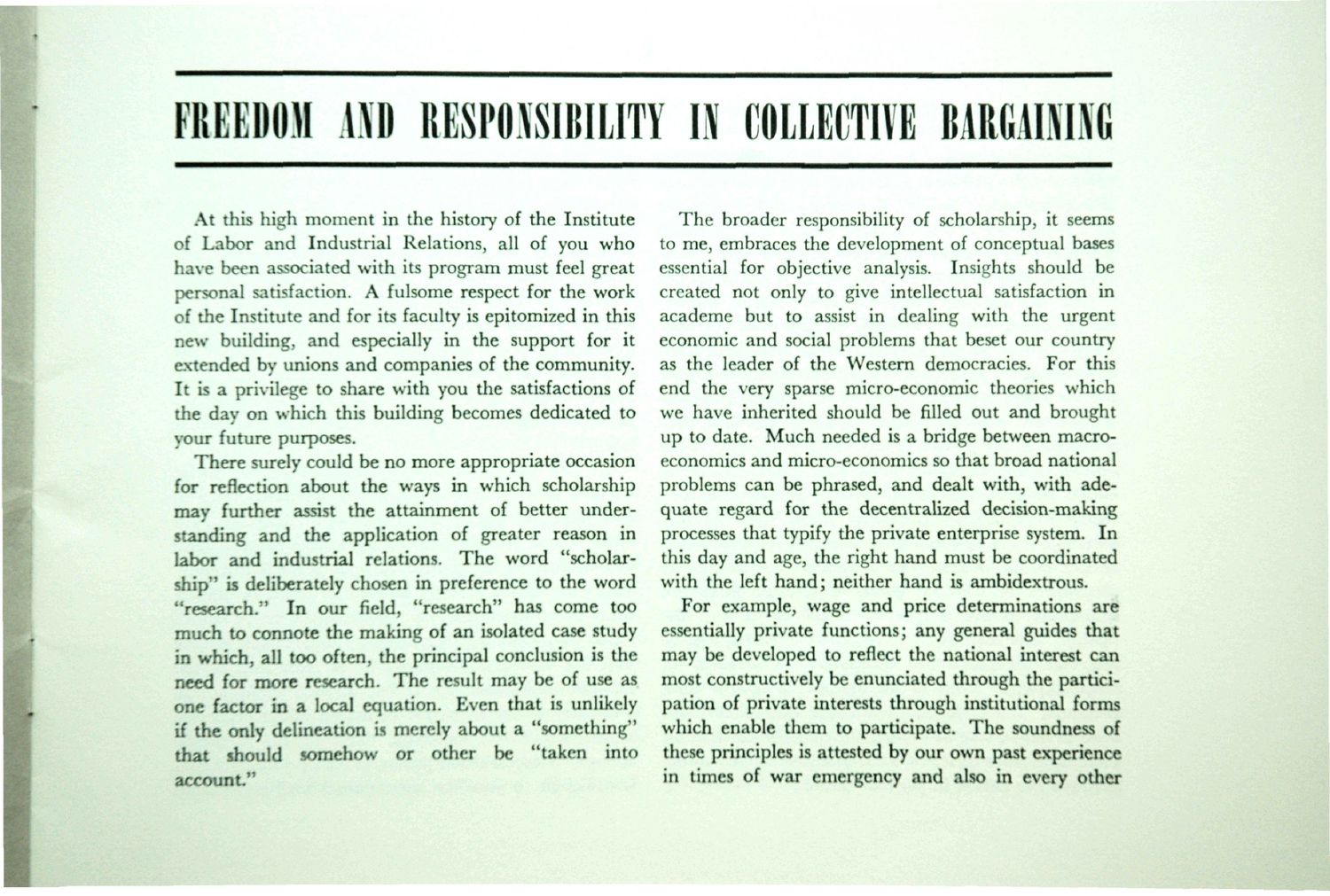| |
| |
Caption: Dedication - Labor and Industrial Relations
This is a reduced-resolution page image for fast online browsing.

EXTRACTED TEXT FROM PAGE:
FREEDOM AND RESPONSIBILITY Ii\ COLLECTIVE BARGAINING At this high moment in the history of the Institute of Labor and Industrial Relations, all of you who have been associated with its program must feel great personal satisfaction. A fulsome respect for the work of the Institute and for its faculty is epitomized in this new building, and especially in the support for it extended by unions and companies of the community* I t is a privilege to share with you the satisfactions of the day on which this building becomes dedicated to your future purposes. There surely could be no more appropriate occasion for reflection about the ways in which scholarship may further assist the attainment of better understanding and the application of greater reason in labor and industrial relations. The word "scholarship" is deliberately chosen in preference to the word "research." I n our field, "research" has come too much to connote the making of an isolated case study in which, all too often, the principal conclusion is the need for more research. The result may be of use as one factor in a local equation. Even that is unlikely if the only delineation is merely about a "something" that should somehow or other be "taken into account*" The broader responsibility of scholarship, it seems to me, embraces the development of conceptual bases essential for objective analysis. Insights should be created not only to give intellectual satisfaction in academe but to assist in dealing with the urgent economic and social problems that beset our country as the leader of the Western democracies. For this end the very sparse micro-economic theories which we have inherited should be filled out and brought up to date. Much needed is a bridge between macroeconomics and micro-economics so that broad national problems can be phrased, and dealt with, with adequate regard for the decentralized decision-making processes that typify the private enterprise system. In this day and age, the right hand must be coordinated with the left hand; neither hand is ambidextrous. For example, wage and price determinations are essentially private functions; any general guides that may be developed to reflect the national interest can most constructively be enunciated through the participation of private interests through institutional forms which enable them to participate. The soundness of these principles is attested by our own past experience in times of war emergency and also in every other
| |